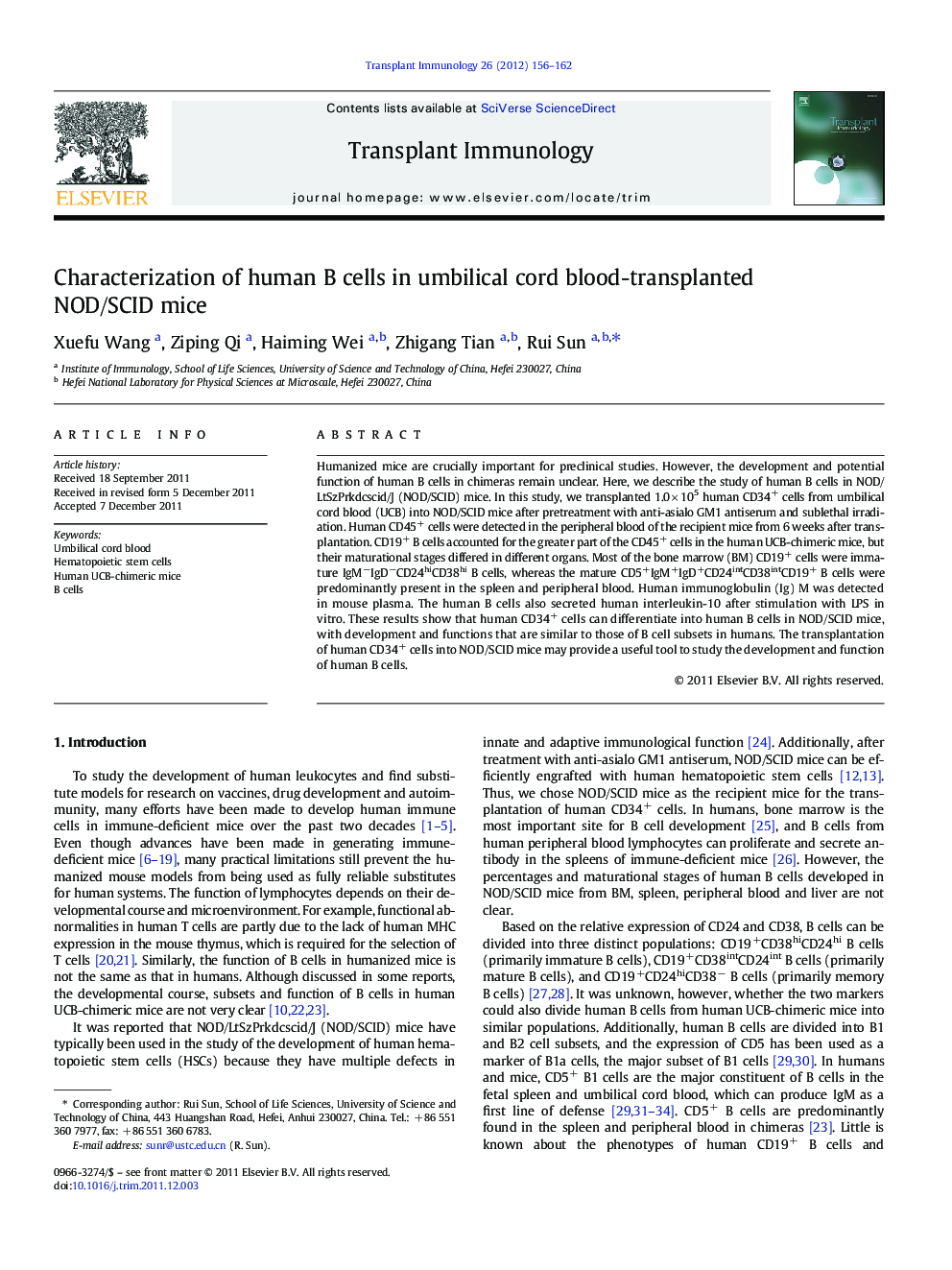| Article ID | Journal | Published Year | Pages | File Type |
|---|---|---|---|---|
| 3392180 | Transplant Immunology | 2012 | 7 Pages |
Humanized mice are crucially important for preclinical studies. However, the development and potential function of human B cells in chimeras remain unclear. Here, we describe the study of human B cells in NOD/LtSzPrkdcscid/J (NOD/SCID) mice. In this study, we transplanted 1.0 × 105 human CD34+ cells from umbilical cord blood (UCB) into NOD/SCID mice after pretreatment with anti-asialo GM1 antiserum and sublethal irradiation. Human CD45+ cells were detected in the peripheral blood of the recipient mice from 6 weeks after transplantation. CD19+ B cells accounted for the greater part of the CD45+ cells in the human UCB-chimeric mice, but their maturational stages differed in different organs. Most of the bone marrow (BM) CD19+ cells were immature IgM−IgD−CD24hiCD38hi B cells, whereas the mature CD5+IgM+IgD+CD24intCD38intCD19+ B cells were predominantly present in the spleen and peripheral blood. Human immunoglobulin (Ig) M was detected in mouse plasma. The human B cells also secreted human interleukin-10 after stimulation with LPS in vitro. These results show that human CD34+ cells can differentiate into human B cells in NOD/SCID mice, with development and functions that are similar to those of B cell subsets in humans. The transplantation of human CD34+ cells into NOD/SCID mice may provide a useful tool to study the development and function of human B cells.
► CD19+B cells are predominant lymphocytes in human UCB-NOD/SCID mice. ► Majority of B cells are CD24intCD38int in periphery but CD24hiCD38hi in bone marrow. ► Mature B cells are CD5+ and producing IgM. ► B cells in human UCB-NOD/SCID mice can produce hIL-10 by stimulation with LPS.
